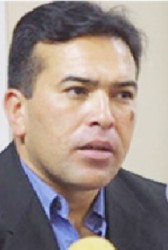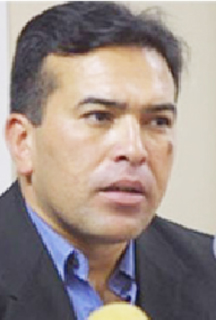CARACAS (Reuters) – A Venezuelan court charged retired General Antonio Rivero yesterday with inciting post-election violence in the latest political flash point in the bitterly divided nation.
Opposition leaders say Rivero, a member of the Popular Will movement that is a driving force of Venezuela’s opposition coalition, became new President Nicolas Maduro’s first political prisoner when he was arrested over the weekend.
Authorities say he was one of those behind a wave of violence, on the day after Maduro’s disputed April 14 election, that represented a coup attempt and killed nine people.
Rivero, who was an ally of former socialist President Hugo Chavez until 2008, was charged with “conspiracy” and “public instigation” at a Caracas court after authorities showed a video of him helping coordinate protesters in the capital’s streets.
“This is part of the persecution the government has carried out, to spread fear,” opposition leader and losing presidential candidate Henrique Capriles said, calling for Rivero’s release and an end to alleged harassment of his supporters.

“If they continue like this, they are going to have to jail 8 million Venezuelans.”
Though his case appears to be losing steam and has not garnered much support from other Latin American countries, Capriles plans to challenge the presidential vote both in local and international courts.
He has asked for a full vote recount, alleging thousands of irregularities and accusing Maduro of “stealing” the election.
A political party allied with the government said yesterday it had evidence of corruption by construction companies linked to Capriles’ family that it would present to state prosecutors and the country’s top court.
At the same time, a special congressional commission created to investigate the post-vote violence said it was sending legislators into the interior of the country to probe the incidents.
The commission, made up only of pro-government deputies, has said it will “determine responsibility for violent actions directed by Capriles” alongside parallel investigations by state prosecutors.
Maduro, who was Chavez’s chosen heir and won the vote by less than 2 percentage points, has warned Capriles of legal action against him, too, and called the opposition leader a “fascist” bent on destabilising the OPEC nation.
The president said violence whipped up by the opposition after the vote had included protests outside the home of Tibisay Lucena, head of the election board. The opposition accuses her of taking orders from the ruling Socialist Party.
“Why did they attack her house? Why did the (private) media not denounce this?” Maduro said yesterday. “Sooner rather than later, the feelings of fascist hate will be defeated.”

